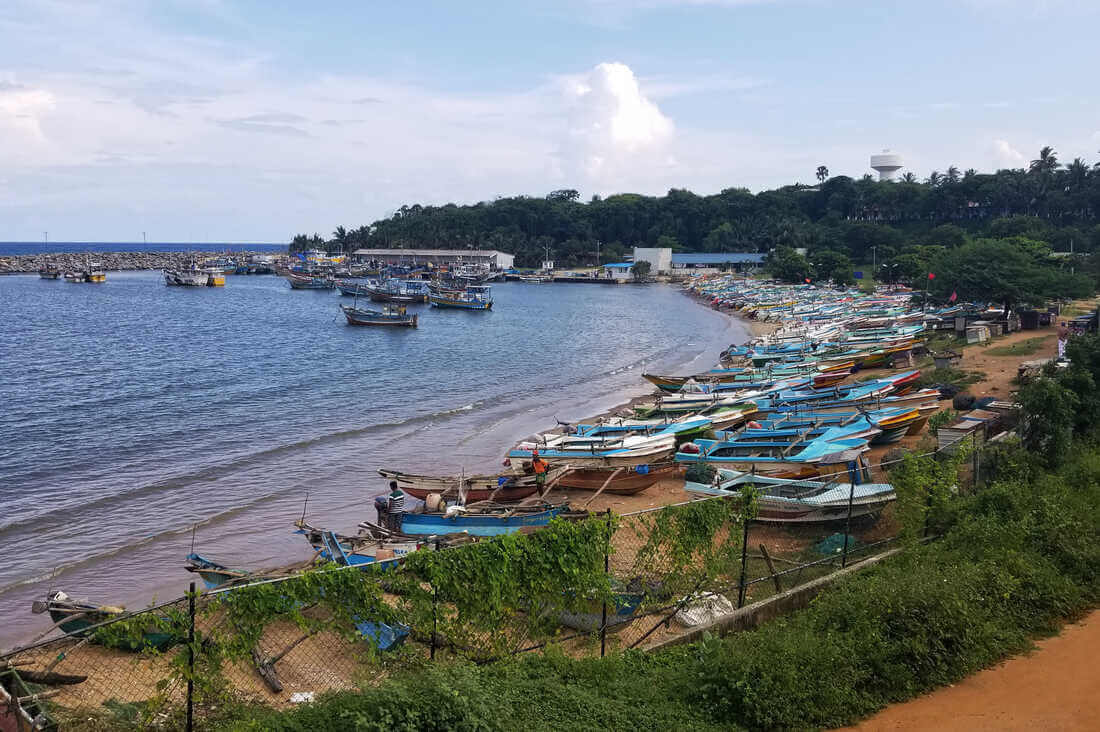Amid reports that a Chinese research vessel will arrive at the Hambantota port on August 11, India has said it keeps a close watch on all issues that impact its “security and economic interests” and stands ready to take “all necessary measures to safeguard them.”
External Affairs Ministry spokesperson Arindam Bagchi said, “I think that should be a clear message.” However, he did not explain what measures India is taking in this regard and China is yet to respond to his statement.
Sri Lankan consulting firm Belt and Road Initiative Sri Lanka (BRISL) recently announced that Chinese scientific research vessel Yuan Wang 5 is scheduled to enter the Hambantota Port for a week next month.
The vessel will “conduct space tracking, satellite control and research tracking in the north western part of the Indian Ocean region through August and September.” BRISL added that it provides an “excellent opportunity for Sri Lanka and the regional developing nations to learn and develop their own space programs.”
The Yuan Wang 5 is a tracking ship and part of the Yuan Wang series that entered into service in 2007. According to the BRISL report, the vessel has “successfully completed a maritime monitoring mission for the launch of Wentian laboratory cabin module of the Tiangong space station, which is the first lab module of China Space Station.”
"We are aware of the Chinese vessel visiting Sri Lanka's Hambantota port. India is monitoring development....," says Arindam Bagchi.
— Rishikesh Kumar (@rishhikesh) July 28, 2022
The Chinese research vessel will be visiting for a week to the port from 11 August. pic.twitter.com/JchSIxFjAg
The release stressed that such research operations are necessary because China’s bid to become a member of the International Space Station has been rejected on several occasions. Moreover, NASA has banned researchers from working with Chinese nationals linked with Chinese state entities or enterprises.
While there has been no official statement on the reports, sources quoted by Deccan Herald claimed that Indian diplomats have raised the issue with Sri Lankan President Ranil Wickremesinghe and Prime Minister Dinesh Gunawardena. Moreover, a government official quoted by Reuters said the Indian high commission in Colombo had lodged a verbal protest with the Sri Lankan foreign ministry on Monday.
The Yuan Wang 5 will be the first such naval vessel to dock at a Sri Lankan port since 2014, at which time a Chinese submarine at the shores of Colombo drew similar concern from India.
India and several Western countries believe that China’s expanding research and civilian infrastructural activities across the region are a means to ultimately expand Beijing’s military footprint. In fact, China has financed several airports, roads, and railways across Asia and Africa.
China's Yuanwang-5 space-tracking vessel conducting a space-ground information exchange and specially provide significant data support to Zhongxing-2E satellite's orbit determination and entry. Now the vessel is sailing pass Taiwan towards Hambantota in Sri Lanka (IMO: 9413054) pic.twitter.com/u5dli89WO4
— Yasiru (@YRanaraja) July 25, 2022
It is believed that such research exercises are also a guise to increase maritime surveillance and gather intelligence.
For instance, in September 2019, India claimed to have spotted and deferred Chinese research vessel Shi Yan near the Andaman and Nicobar Islands. In 2020, two other Chinese research vessels once again entered Indian waters near the islands.
In fact, the $1.5 billion Hambantota port itself is seen as an example of Chinese overreach. China now controls the port’s commercial activities, after Colombo awarded Beijing a 99-year lease due to its inability to pay off its debt. Since then, foreign and local sources have reported that the port is always under heavy security and provides very little information about its activities.
Aside from concerns about Chinese surveillance and military activity, the port is also a critical route in shipping lanes between Asia and Europe.
#China's Yuanwang-5 space-tracking ship ystd successfully completed a maritime monitoring mission for the launch of #Wentian, the 1st lab module of #ChinaSpaceStation. The ship has by far sailed safely over 580,000 nautical miles &completed 80+ tasks at sea. pic.twitter.com/6v5lo7aI3K
— Ambassador Deng Xijun (@China2ASEAN) July 25, 2022
Against this backdrop, both India and China have tussled for political and economic influence over Sri Lanka, particularly as the island nation’s crisis worsens.
In fact, India has already provided Sri Lanka with over $4 billion in currency swaps, lines of credit, and food and diesel deliveries.
Keeping this in mind, USAID Administrator Samantha Power has said that India responded “really swiftly” compared to China’s “opaque loans” with unfairly high interest rates.
During a three-day visit to India this week, Power criticised China’s “headline grabbing infrastructure projects,” saying they are sparsely used and “generate little income.” Power added, “The calls to provide more significant relief gone unanswered and the biggest question of all is whether Beijing will restructure debt to the same extent as other bilateral creditors.”

